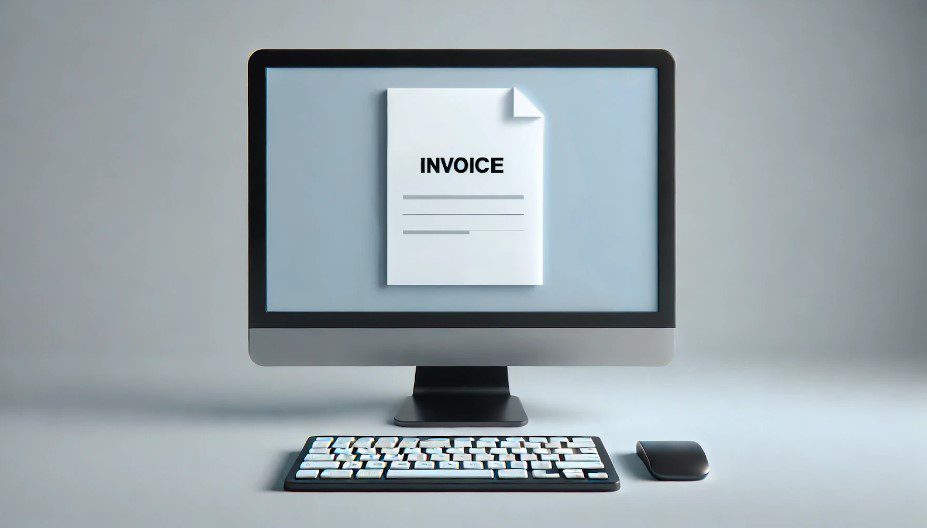INSIGHTS
E-INVOICE
Is E-Invoicing Mandatory for Malaysia?
As the digital age progresses, many countries have adopted electronic invoicing (e-invoicing) to streamline financial transactions and improve efficiency. Malaysia is no exception, and the implementation of e-invoicing is gaining momentum.
In this article, we explore what e-invoices are, their benefits, best practices, whether e-invoicing is mandatory in Malaysia, the scenarios in which it is mandatory, and who the e-invoicing requirement applies to.
What are e-Invoices?
Electronic invoices, commonly known as e-invoices, are digital versions of traditional paper invoices. They are generated, sent, received, and processed electronically through a secure e invoice system.
Unlike PDF invoices sent via email, true e-invoices are structured data files that can be automatically imported into a recipient’s accounting system without manual intervention.
E-invoices contain the same information as paper invoices, including the invoice number, date, seller and buyer details, itemized list of products or services, and the total amount due.
However, because they are in a standardized electronic format, e-invoices can be processed faster and with fewer errors than paper invoices.
Benefits of E-Invoicing
The transition to e-invoicing offers numerous benefits for businesses, the government, and the economy as a whole.
Increased Efficiency and Cost Savings
E-invoicing significantly reduces the time and cost associated with processing paper invoices. Automated systems streamline the invoicing process, reducing manual data entry errors and speeding up approval workflows. Businesses can save on printing, postage, and storage costs, leading to substantial financial savings.
Enhanced Accuracy and Compliance
E-invoices minimize human error, ensuring that invoices are accurate and consistent. This accuracy helps in maintaining compliance with tax regulations and reduces the risk of audits and penalties. The standardized format of e-invoices also facilitates easier reconciliation and faster payment cycles.
Environmental Impact
By eliminating paper invoices, e-invoicing contributes to environmental sustainability. The reduction in paper usage and physical transportation of invoices helps lower carbon emissions and supports corporate social responsibility initiatives.
Improved Cash Flow Management
E-invoicing accelerates the invoicing and payment process, leading to improved cash flow management. Faster invoice processing means quicker payments from clients, which can enhance a business’s liquidity and financial health.
Is E-Invoicing Mandatory for Malaysia?
In Malaysia, the e-Invoicing requirement applies to all individuals and legal entities, covering a wide range of organizations.
This includes associations, body of persons, branches, business trusts, co-operative societies, corporations, limited liability partnerships, partnerships, property trust funds, property trusts, real estate investment trusts, representative offices, regional offices, trust bodies, and unit trusts.
The broad applicability ensures comprehensive compliance across various sectors.
Scenarios requiring the issuance of e-Invoices are centered around financial documentation. Firstly, e-Invoices serve as proof of income, documenting sales or transactions to recognize taxpayer income.
Secondly, they are used as proof of expenses, capturing purchases and other expenditures, including returns and discounts. In certain cases, such as foreign transactions, taxpayers may need to issue a self e-Invoice to record expenses.
Additionally, e-Invoices are crucial for determining annual turnover or revenue. For taxpayers with audited financial statements, the turnover or revenue for FY 2022 is used, while those without audited statements rely on annual revenue reported in their tax returns for YA 2022.
For new businesses starting from 2023, the e-Invoicing implementation date is set for January 1, 2027, with phased notifications provided to mandated taxpayers. This structured approach ensures systematic adoption and compliance with e-Invoicing regulations.
Who Is the e-Invoice Authority in Malaysia?
The Inland Revenue Board of Malaysia (IRBM) is responsible for overseeing e-invoice activities. In July 2023, the IRBM issued guidelines detailing the implementation scope of e-invoicing.
These guidelines cover various concepts, including the implementation methodology, impact on compliance, record-keeping, and addressing common questions and concerns.
Additionally, the IRBM signed a Memorandum of Understanding (MoU) with the Malaysian Digital Economy Corporation (MDEC) to collaborate on the e-invoice initiative.
Best Practices for Implementing E-Invoicing
To overcome the challenges of e-invoicing and maximize its benefits, businesses should follow best practices during implementation.
Choose the Right E-Invoicing Solution
Selecting appropriate invoice software in Malaysia is important. The software should be compatible with existing systems, scalable, and compliant with local regulations. Businesses should opt for solutions that offer user-friendly interfaces, robust security features, and reliable customer support.
Provide Training and Support
Employees need adequate training to use the new e-invoicing system effectively. Offering ongoing support and resources ensures that staff can use the system confidently and troubleshoot any issues that may arise. This training helps in maximizing the efficiency and accuracy of e-invoicing processes.
Collaborate with Stakeholders
Successful e-invoicing implementation requires collaboration between all stakeholders, including suppliers, customers, and financial institutions. Clear communication and coordination help ensure that everyone involved understands the benefits and processes associated with e-invoicing.
Monitor and Evaluate Performance
Continuous monitoring and evaluation of the e-invoicing system’s performance are necessary. Businesses should track key metrics, such as invoice processing times and error rates, to identify areas for improvement and optimize the system’s efficiency.
Final Takeaways
While e-invoicing is not yet mandatory for all businesses in Malaysia, its adoption is strongly encouraged due to its numerous benefits.
Businesses should proactively prepare for the eventual transition to e-invoicing to stay ahead of regulatory changes and enhance their operational efficiency.
Upon understanding the current regulations, benefits, challenges, and best practices, businesses can successfully implement e-invoicing and reap its rewards.
Call (+60) 4-2999399 or (+60) 16-328 4983 if you need any assistant

